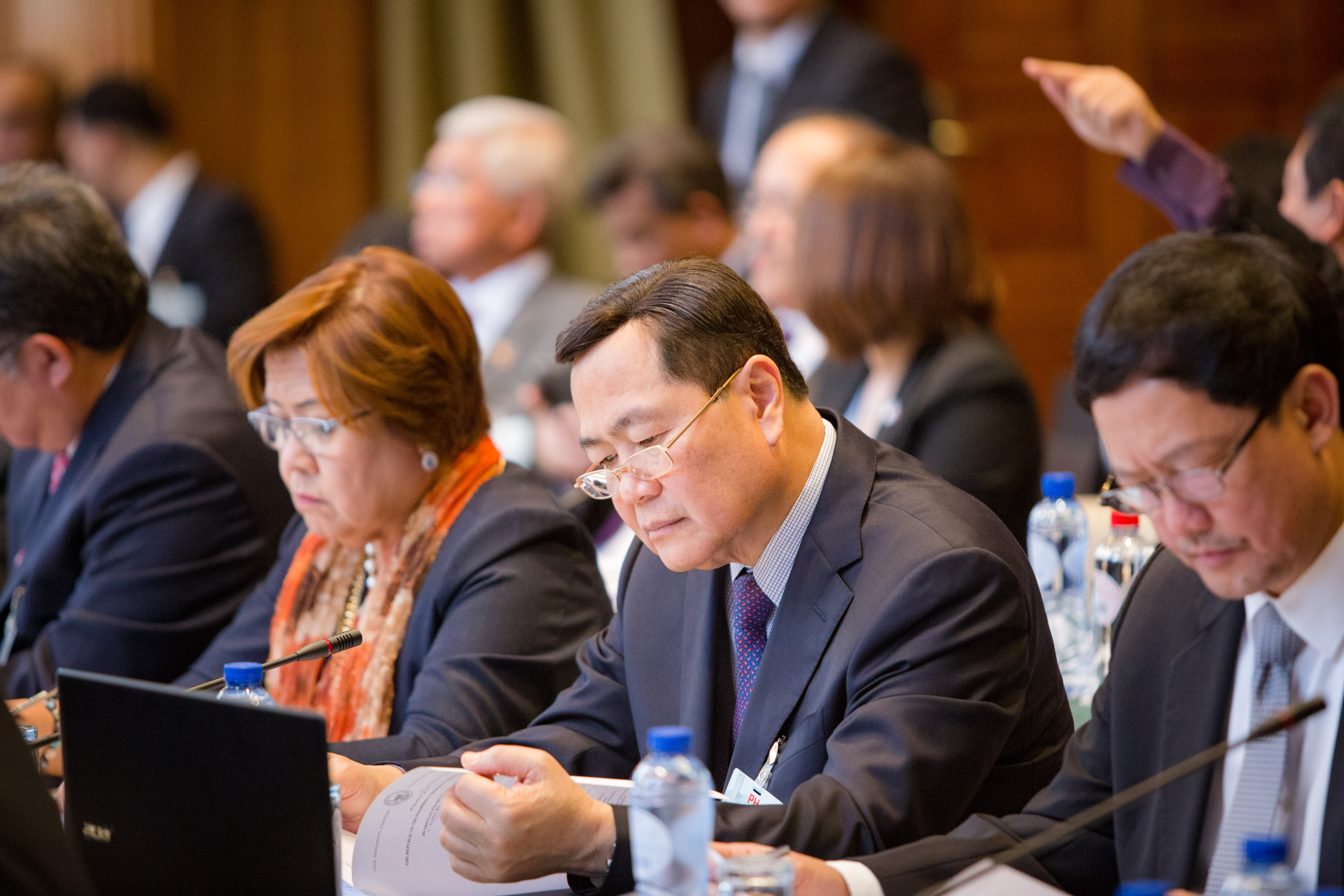
MANILA, Philippines – The Philippines can sit down with China for bilateral talks on the West Philippine Sea (South China Sea), but only once an arbitral tribunal in The Hague, Netherlands, issues a ruling that favors Manila.
Senior Associate Justice Antonio Carpio of the Philippine Supreme Court made the statement on Thursday, June 9, when asked if bilateral or one-on-one talks with China would be good or bad for the Philippines.
Philippine President-elect Rodrigo Duterte has said he is open to holding bilateral talks with China after 3 to 4 years of exploring a multilateral set-up, which involves a third party. (READ: Duterte: We will never surrender Scarborough)
On whether bilateral talks will help the Philippines, Carpio said that "it depends when."
Carpio, one of the Philippines’ leading experts on the West Philippine Sea, recounted when China seized Mischief Reef from the Philippines in 1995.
Back then, he said, the Philippines asked China, "Let’s sit down and discuss."
"When we sat down, China said, 'There’s nothing to discuss because we have indisputable sovereignty,'" recalled Carpio, who was, at the time, the chief presidential counsel of the Ramos administration.
"We kept on bugging China, 'Let’s discuss.' China will say, 'You really want to discuss? Okay, you concede first sovereignty to China, we will discuss revenue sharing.' Of course we did not agree. And no other country agreed to that proposal," he said on the sidelines of a symposium organized by the Philippine Air Force.
Leverage vs China
Fast-forward to 2016, Carpio said the Philippines "can sit down with China if there’s a new element, and that new element is a ruling."
He said: "Once we have a favorable ruling, that’s the time to sit down and talk to China, because otherwise, if we talk to China now, we’ll get the same response."
Carpio pointed out that the Philippines, from 1995 to 2012, "kept on asking China to negotiate," but "got the same response."
Seventeen years after the Mischief Reef incident, China ended up seizing Scarborough Shoal after a standoff between Philippine and Chinese vessels there in April 2012.
Carpio said: "So do you think we should continue with the negotiation for the next 17 years? The world has forgotten about Mischief Reef. They will forget about Scarborough Shoal after 17 years. So we decided to try a new tack: Get a ruling, and when we sit down with China, show them the ruling. And that is the time to talk to China, when you have the ruling."
This ruling would be the Philippines’ leverage against China, he said.
'Joint exploration possible'
Carpio also addressed the possibility of conducting with China a joint exploration of the West Philippine Sea, which Duterte had said he is open to.
"The joint exploration is possible under Philippine law," Carpio said.
The SC justice cited the situation in the Malampaya gas field, which provides 40% of electricity in the Philippines’ biggest island group, Luzon.
"Right now Malampaya is being exploited economically by a foreign company, 90% foreign-owned, as long as it is done under Philippine law. We’ve invited China to bid also for areas in the Reed Bank under Philippine law, but they don’t want to bid because there’s a sovereignty issue," he said.
Asked what the Duterte administration should avoid or remember in handling the West Philippine Sea dispute, Carpio mentioned "that incident where the Americans brokered an agreement to mutually withdraw" vessels from Scarborough Shoal.
"We agreed, China agreed. We withdrew, China did not withdraw. So we have to bear that in mind when we talk to China," he said.
Duterte asserting Philippines' rights
In July 2015, Carpio also said the Constitution bars the next Philippine president from conceding the West Philippine Sea to Beijing.
While remaining open to bilateral talks with China, Duterte, for his part, has vowed to assert the Philippines’ rights over the West Philippine Sea.
"You have to listen to my declaration – whether you believe it or not, that's something else – but if we talk, I'd say that the predicate of these talks is that what you are occupying now belongs to the Republic of the Philippines," Duterte said in January.
The Aquino administration itself is open to bilateral talks with China, but after winning the case at The Hague.
Philippine Department of Foreign Affairs spokesman Charles Jose said in a media briefing in April 2015: "We really have to go back to bilateral talks. Once we have a decision by the court which is favorable, we can at least negotiate from a stronger position.”
China has consistently pushed for bilateral talks as it detests third-party involvement to resolve the sea dispute. – Rappler.com